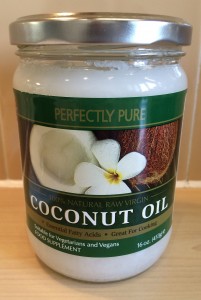Wherever I go lately, people seem to be drinking coconut water. It’s the new thing, though two billion Asian people who’ve grown up with it might find that idea funny.
I’m not a fan but I like the taste of coconut and know it’s high in manganese, an apparently nifty anti-ageing mineral. And when your mother, a nurse for forty years, tells you to write about coconuts, you know you must investigate.
The tropically grown coconut is a versatile fruit, and staple of numerous industries, including food, medicine and beauty products.
Coconut milk, cream, oil, butter and powder are used in cooking. Sap from coconut flowers is drunk as toddy, along with palm wine and coconut vodka. It also makes sweets and palm sugar.
Coconuts are used in moisturisers because its oil is easily absorbed. Its ground down shell is put into exfoliants, and its high levels of lauric acid can be processed into a detergent for shower gels and shampoos. Useful stuff.
In terms of food, 100 grammes of raw coconut yields 354 calories, 33g of fat, 15g of carbohydrate, 3g of protein and 47g of water. There are also small amounts of B vitamins, a little C, E and K, and higher levels of iron, phosphorus, magnesium, zinc and potassium, as well as a lot of manganese. On the other hand, 100ml of coconut water provides around 19 calories and fewer nutrients.
So, after a blur of facts, weights and biochemistry, what does this mean? In a nutshell, raw coconut can be a great food medicine. As well as its washing potential, lauric acid also has strong antiviral properties as the fatty acid only abounds in human milk.
The high saturated fat and carbohydrate content means raw coconuts are naturally great energy providers and shouldn’t be confused with the refined hydrogenated type. Yet, for anti-ageing purposes in a processed food world, another key part is the mineral content, especially manganese.
This trace element plays a part in many vital bodily functions: metabolism, fertility and potency, heart and digestive actions, nerves and muscle control, brain development, the maintenance of bones and the antioxidant system.
It can also help reverse osteoporosis, prevent diabetes and nerve-muscle disorders, and ward off depression – much off which can strike in middle age.
Manganese is found in leafy green vegetables, fruits, cinnamon, whole grains, tea and nuts. Our 100g of coconut yields 1.5mg of the mineral, or 71% of the recommended adult daily intake. A chunk or two is therefore well worth considering to help keep your constitution in order.
Coconuts. Don’t be shy. Get yourself a lovely bunch.


Comments are closed.